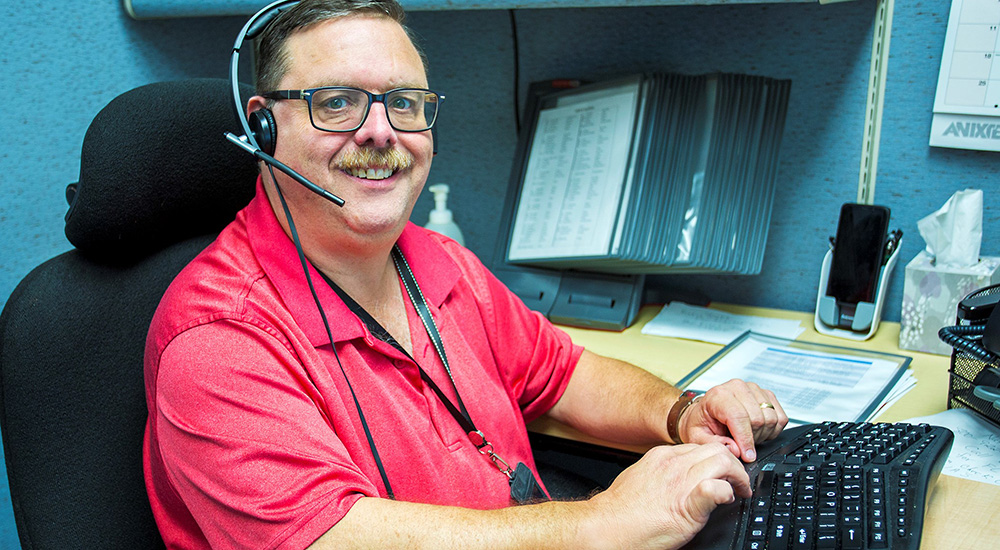Veterans enrolled for care with Veterans Integrated Service Network (VISN) 8 and who have urgent medical questions can call the Clinical Contact Center 24-hours-a-day, seven days a week.
Veterans who call 877-741-3400 will be connected with medical support assistants, nurses, licensed independent practitioners and pharmacists. They can get answers on general health questions or have a virtual visit with a doctor. Equally important, there is no copay.
The service is available 365 days a year. Veterans can call when they have a non-emergency medical condition or are unable to see their primary care provider. As a result, the service provides a convenient alternative to the emergency room, urgent care center or clinic.
Patients can download the VA Video Connect app on Android, iOS and Windows mobile and web-based devices to enter a private video session with practitioners.
The VA Sunshine Healthcare Network operates the service. As a result, only Veterans who are enrolled for care within VISN 8 can use it. The VA Sunshine Healthcare Network is the nation’s largest system of hospitals and clinics. It serves more than 1.5 million Veterans across Florida, South Georgia, Puerto Rico and the U.S. Virgin Islands.
Doesn’t replace care providers
The Clinical Contact Center should not replace Veterans’ primary care provider. However, Center staff can prescribe medicine, when needed. Veterans can pick the medicine up at the closest VA facility with a pharmacy or a community pharmacy, or can receive the medicine by mail.
Center personnel add information regarding clinical interactions in the Veteran’s medical records.
Suzanne Klinker is VISN 8’s deputy network director for the Clinical Contact Center. She said, “It’s our privilege to meet and exceed the needs of Veterans around the clock from their home, work, school or wherever they may be. We are so happy that this access to care in the virtual environment is making a great, positive difference in the lives of many.”
The Clinical Contact Center team is VHA Office of Nursing Services-based. In fact, VISN 8 is the first fully comprehensive Clinical Contact Center VA operates.
VA is supporting Clinical Contact Center modernization. VA Medical Center call centers collectively respond to tens of millions of telephone calls each year.
Photos by Mike Strickler, multi-media chief for the Orlando VA Healthcare System.
Topics in this story
More Stories
The Medical Foster Home program offers Veterans an alternative to nursing homes.
Watch the Under Secretary for Health and a panel of experts discuss VA Health Connect tele-emergency care.
The 2024 National Veteran Suicide Prevention Annual Report provides the foundation for VA’s suicide prevention programs and initiatives.








Who is running the VA now?
Why have services dropped under trump?
Why can’t my prescription refills get honored in a more timely manner.
Is his plan to just let us die?
So, are these people who answer the calls actual medical professionals or JUST SECRETARIES who do NOT have a NEED TO KNOW the veteran;s medical conditions and current concerns???
This just seems to me to be just another way to push veterans out of V.A. care instead of taking care of veterans as they were promised when they enlisted.
Getting to know how to get into the VISN 8 program would be helpful.
I have myasthenia gravis, they have no cure & don’t know how you get it. I live in Mountain Home AR. over 300 miles round trip to Little Rock to see the neurologist. It effects muscles and other things. In 2019 I have fell four times and been put in the hospital twice. The last time I went down to Little Rock they cut off my travel pay. Well that is the closest place the VA has a neurologist. I don’t think that is right. Thanks Phillip Scott
I also have myasthenia gravis. I didn’t know it until it hit me like a tractor trailer. I had all of the symptoms of a full blown stroke. The VA here in Las Vegas doesn’t accept ambulances so I had a friend drive me to the ER at the VA. They refused to do a cranial MRI because I had a tiny coil loop recorder implanted below my left breast. I had previously had multiple MRI’s from a civilian provider who had no problem with the coil. They would rather let me die rather than risk their machine (which the civilian provider had already proven was not a risk). So I had an ambulance take me to a civilian hospital and the first thing that they did was a cranial MRI. Well, I wasn’t having a stroke but I still had all the symptoms. It took the VA 3 weeks to figure out that I had MG.